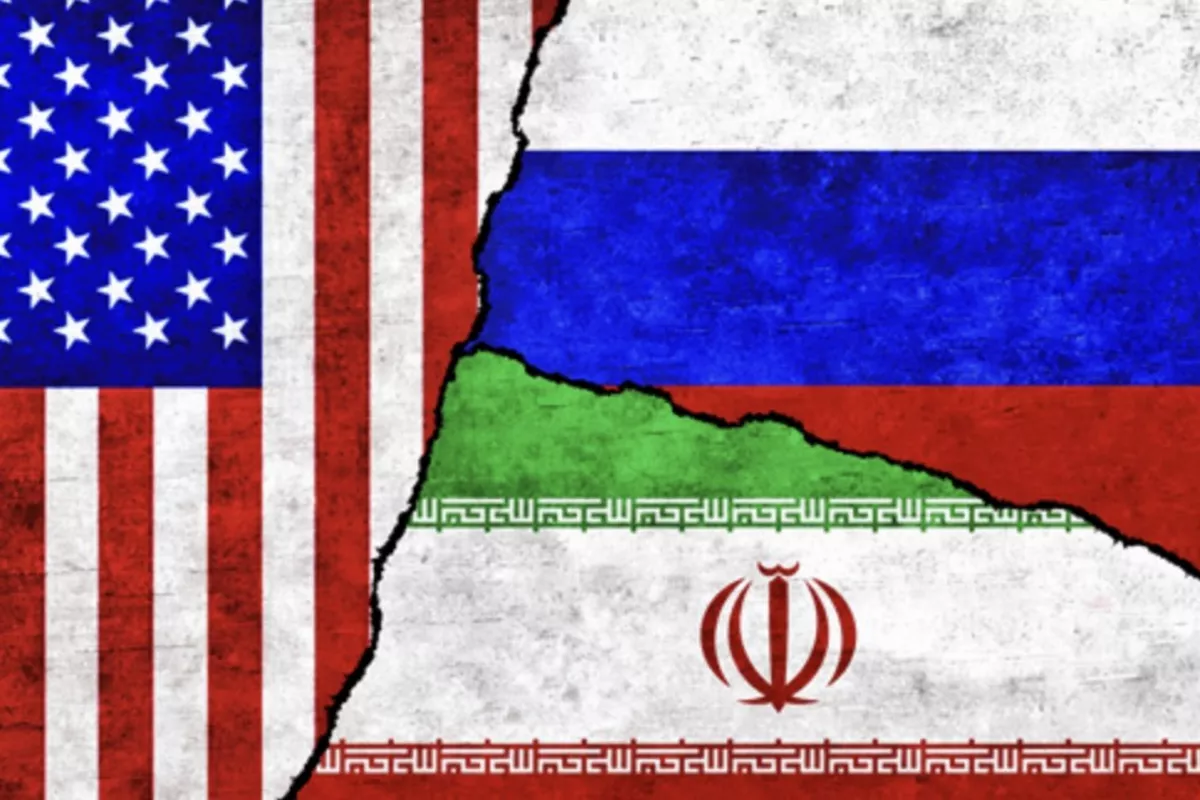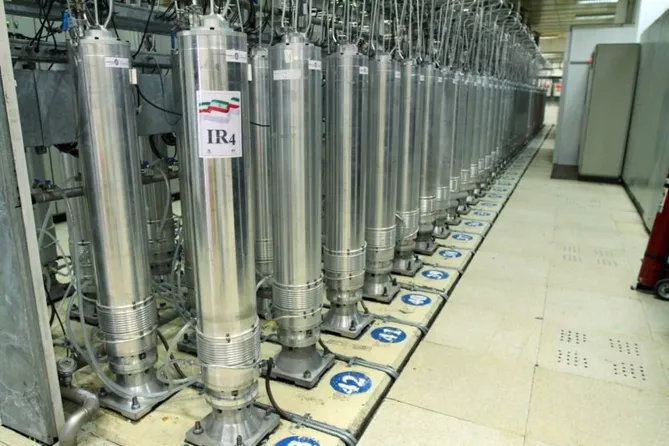
The sanctions imposed on Iran following the inauguration of the 47th President of the United States, Donald Trump, have begun to yield certain results.
On May 22, truck drivers across the Islamic Republic launched mass protests over the rising cost of living, meager wages, low insurance rates, and a sharp increase in fuel prices. The strike, which began in the city of Bandar Abbas, quickly spread throughout the country.
The immediate trigger for the truckers’ discontent was the government's plan to raise fuel prices more than tenfold, a move that could spark an uncontrollable spiral of inflation. A similar step in 2019-the cancellation of fuel subsidies-also provoked nationwide protests. Given this context, it would seem logical to intensify pressure on the Iranian economy to further destabilize the ayatollahs' regime. Yet, for reasons unknown, President Donald Trump's administration has notified U.S. agencies of the need to suspend the imposition of new sanctions. This is likely being done in anticipation of another round of negotiations with the Islamic Republic over its nuclear program.
However, there is a risk that Iran will seek to stall the process while waiting for the U.S. midterm congressional elections scheduled for 2026. Should the balance of power shift in favor of the Democrats, it is far from certain that the U.S. would risk a military strike against Iran’s nuclear infrastructure.
Particular alarm has been raised among Iran’s neighbors by a report from the International Atomic Energy Agency (IAEA), which notes Iran’s undeclared nuclear activities. In this context, European countries are preparing to present a draft resolution at the UN Security Council accusing the Iranian leadership of violations. The IAEA report, the findings of which were published by Reuters on May 31, states that Iran has been conducting secret research using undeclared nuclear materials, with traces found at several sites across the country. A separate IAEA document notes that Iran’s stockpile of highly enriched uranium has recently doubled, giving the country the potential to produce nine nuclear warheads.

Centrifuges used to enrich uranium at Iran’s nuclear fuel plant in Natanz in 2019. Photo: Atomic Energy Organization of Iran
Perhaps this is why Ayatollah Ali Khamenei stated that a total abandonment of uranium enrichment “100% contradicts Iran’s national interests.” As reported by Reuters, he categorically rejected the U.S. proposal put forward as part of the negotiations to resolve the longstanding dispute over Tehran’s “nuclear ambitions.” The U.S. offer was submitted to Iran on May 31 through Omani mediation by Donald Trump’s Middle East envoy, Steve Witkoff. Khamenei, who holds ultimate authority in the Islamic Republic, said that the U.S. proposal contradicts Iran’s belief in independence and the principle of “We Can.”
“Uranium enrichment is the key to our nuclear program, and our enemies are focused precisely on that,” he stated. According to the Financial Times, Washington proposed allowing Iran to continue low-level enrichment under an interim agreement before ceasing it altogether. The negotiating framework also includes the idea of creating an international consortium involving the U.S. and regional countries. In other words, the goal is to impose strict control over Iran’s nuclear program and prevent it from enriching uranium to weapons-grade levels at its own discretion.
President Trump has again demanded that Tehran completely dismantle its nuclear program. In the Trump administration’s view, this is necessary to prevent the ayatollah regime from acquiring nuclear weapons. For their part, Iranian leaders have called halting uranium enrichment on Iranian soil a “red line,” stressing that their nuclear program is intended solely for civilian use. Khamenei emphasized that nuclear power is useless without uranium enrichment, as atomic power plants require fuel. If Iran cannot produce it domestically, it will have to turn to the United States, which, in that case, would impose dozens of conditions for its supply.
A senior Iranian official told the Financial Times that Tehran has been consistent in its position on uranium enrichment, while the U.S. remains undecided. He did not provide details of the American proposal but noted that Iran is working to organize a sixth round of talks. It is clear that even in this round, Tehran has no intention of retreating. The Islamic regime firmly stands by its right to a nuclear program.
As Reuters reports, after five rounds of negotiations between the U.S. and Iran, a number of issues remain unresolved. Chief among them are Tehran’s insistence on continuing uranium enrichment on its own soil and its refusal to ship out its existing stockpile of highly enriched uranium, which could serve as material for nuclear weapons. That the negotiations are reaching a deadlock is underscored by a report from Reuters on June 3, citing an Iranian diplomat who said Iran is prepared to reject the U.S. nuclear deal. The source stated that the U.S. proposal is “doomed to fail” as it does not meet Tehran’s interests.
Commenting on the recent U.S. offer, Deputy Foreign Minister Abbas Araghchi said: “It is being reviewed, and Iran will provide a response at the appropriate time in line with national interests.” Despite the difficulties, he added, “the diplomatic window remains open, and there is a real opportunity to reach a solution through negotiations.” Most likely, Araghchi’s statement is a nod to diplomatic protocol, as the U.S. demands a total halt to enrichment at all levels, while Tehran insists on its right to continue such work-even up to the development of nuclear weapons.

Photo credit: Andrew Harnik/Getty Images, Majid Saeedi/Getty Images, Mikhail Metzel/Sputnik/Pool/via Reuters, Planet Labs Inc/Handout via REUTERS
Previously, Washington had expressed a willingness to tolerate low-level enrichment, but it has now adopted a tougher stance. It seems that the U.S. has come to realize that the Islamic regime cannot abandon its core position without losing face, and that it will continue to push for the lifting of sanctions in exchange for vague promises.
Of particular note is the coordination between Russian President Vladimir Putin and U.S. President Donald Trump, who discussed the nuclear deal with Iran during a recent phone call. According to Trump, Putin expressed willingness to participate in the negotiations with Tehran, given their close ties. The U.S. President told Putin that Iran must not be allowed to possess nuclear weapons-a point on which, according to Trump, the Russian President agreed. Trump added that Washington expects a final response from Iran on the nuclear deal “within a very short time frame.”
According to available information, the White House has adjusted its position in the latest proposal, suggesting that the U.S. might invest in Iran’s civilian nuclear energy sector and join a consortium that would fully control the enrichment of low-enriched uranium on Iranian territory. Previously, Trump had stated that a potential deal would prohibit Iran from enriching uranium in any form.
It should be noted that Israel is closely monitoring the developments around the negotiations. If the talks collapse, Israel is prepared to launch strikes on Iran’s nuclear facilities. The country’s leadership has assured the White House that no such action will be taken unless President Trump signals that the diplomatic process with Tehran has definitively failed. Nonetheless, the Israel Defense Forces regularly conduct drills simulating possible strikes on Iranian sites, using Houthi targets in Yemen as stand-ins for real operations.
The only question that remains is: whose nerves will give out first-and who will “accidentally” give the order to attack?
Share on social media